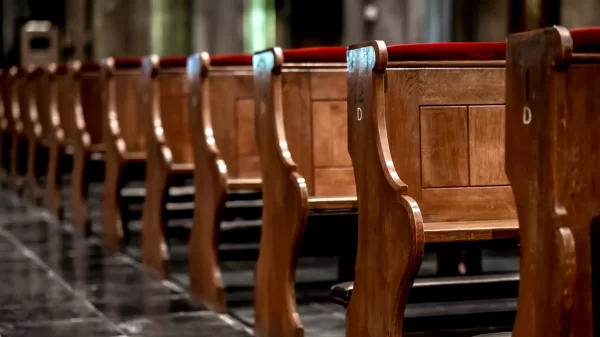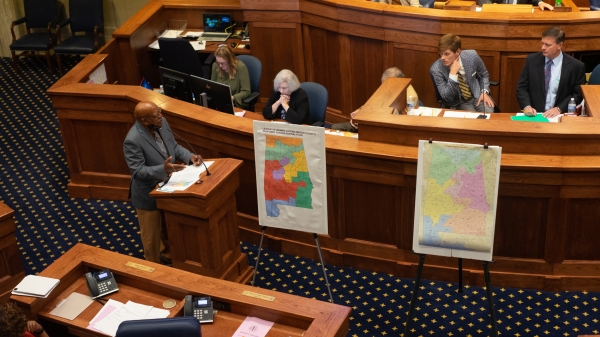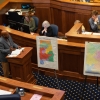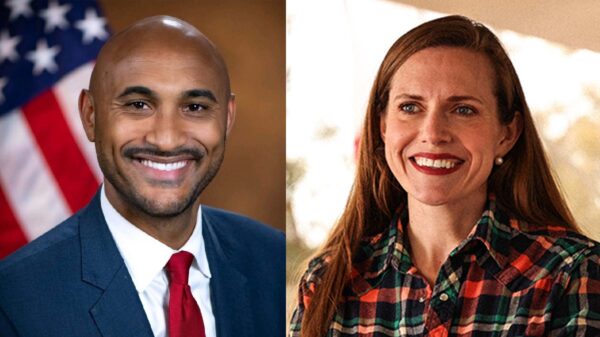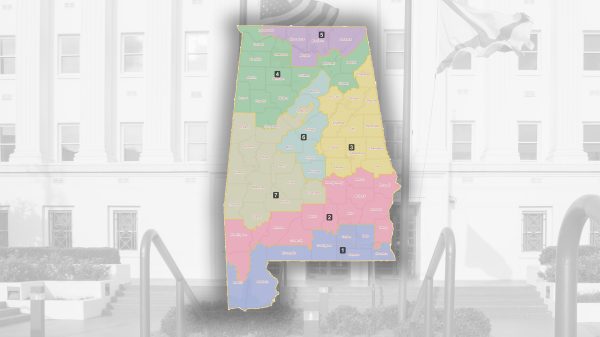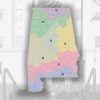By Lee Hedgepeth
Alabama Political Reporter
WASHINGTON, D.C. – Yesterday the US Supreme Court agreed to hear a case challenging the redistricting of electoral districts by the Alabama Legislature in response to 200 census results.
The redistricting, which occurred under the direction of Republicans, has been upheld in lower courts, facing challenges based on charges of racially motivated gerrymandering, minority voting dilution, and violation of the one man, one vote principle.
The US Supreme Court has agreed to review the lower court’s ruling on the matter, consolidating two appeals, one from the Alabama Democratic Conference and one from the Legislative Black Caucus, and scheduling them for oral argument and decision during the High Court’s next term, which begins in October.
While today’s primary will go on as scheduled, and candidates are sure to campaign from today until the November general election, after hearing arguments in the redistricting case, the Supreme Court could – if it decides in favor of the Black Caucus and the ADC – overturn the current legislative districts, and require re-elections. This could even be the case if the Court did not decide the case until towards the end of next term – a time when controversial cases are usually announced – and a time after the November election cycle. In that scenario, a new general election could be ordered.
There is some precedent for the overturning of elections due to redistricting problems. After demographic changes in the 1980 census and a resulting redistricting, the Supreme Court ordered a repeat general election after it ruled the new electoral boundaries unconstitutional. Instead of holding new primaries, state executive committees nominated candidates without an election.
The Alabama Attorney General’s Office has, in all lower case decisions, defended the new boundaries, saying that any factor race played was necessary in order to comply with federal voting nondiscrimination standards. AG Luther Strange has also pledged to defend the new districts through whatever legal means necessary now that the case has been granted a place on the Supreme Court docket.
The claims made by those challenging the lines in each case are summarized below.
Alabama Legislative Black Caucus v. Alabama
- 1. The redistricting plan violates the principle of one person, one vote
- 2. The redistricting plan unnecessarily classifies African-Americans and packs them into districts with the goal of maintaining supermajority percentages
- 1. Lawmakers in the legislature trying to reach 2010 minority district percentages were applying an unnecessary racial quota
- 2. The redistricting plan violates Section 2 of the Voting Rights Act and the Fourteenth Amendment of the US Constitution
Alabama Democratic Conference v. Alabama




















